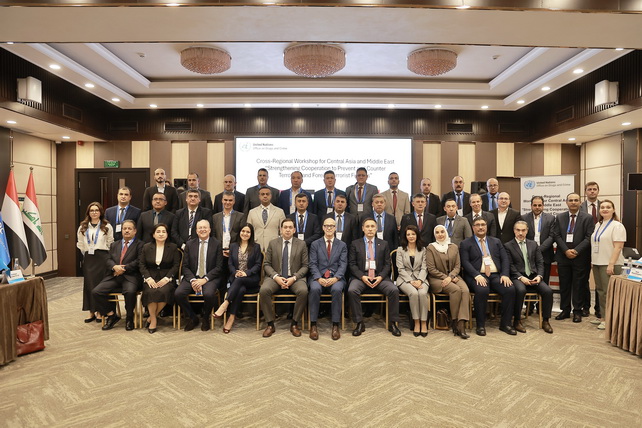
Central Asian and Middle Eastern Experts Strengthen Cooperation in Countering Terrorism
Central Asian and Middle Eastern Experts Strengthen Cooperation in Countering Terrorism
Tashkent, Uzbekistan (UzDaily.com) — On 23–25 September 2025, Tashkent is hosting an interregional seminar on “Strengthening Cooperation to Prevent and Counter Terrorism and Foreign Terrorist Fighters.”
The event is organized by the Regional Office of the United Nations Office on Drugs and Crime (UNODC) for Afghanistan, Central Asia, Iran, and Pakistan, together with the Institute for Strategic and Interregional Studies under the President of the Republic of Uzbekistan (ISMI).
The seminar brings together leading experts from Central Asia and the Middle East, including Kazakhstan, Kyrgyzstan, Tajikistan, and Uzbekistan, as well as Iraq, Jordan, Lebanon, and Yemen.
Speaking at the forum’s opening, ISMI Deputy Director Bakhtiyor Mustafayev emphasized the importance of the event as a platform for strengthening international dialogue and developing joint measures to combat terrorism.
“This is an important step in advancing cooperation between the two regions in this area,” the expert stressed.
According to him, a key condition for effectively countering contemporary threats is a multilateral and coordinated approach to prosecution, rehabilitation, and reintegration of foreign terrorist fighters and their families.
In this context, Mustafayev highlighted the activities of the Regional Expert Council on the Rehabilitation and Reintegration of Returnees (REC), established in May 2024 at the initiative of the President of Uzbekistan Shavkat Mirziyoyev.
It was noted that the Council is already showing initial positive results. Consultations are being held, joint events and expert discussions are organized, including meetings in Tashkent and Astana.
Concluding the seminar, the ISMI Deputy Director stated that the REC has the potential to become a unique international platform for sharing expertise, developing professional knowledge, and creating effective methodologies for the rehabilitation and reintegration of citizens repatriated from conflict zones.
At the same time, the Council’s work is fully aligned with the recommendations of the UN Security Council Counter-Terrorism Committee Executive Directorate.